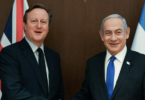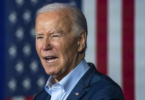WASHINGTON (Sputnik): The Trump administration was justified in its decision to expedite 22 arms sales to Saudi Arabia and the United Arab Emirates due to the alleged threat that Iran poses to the United States and its allies in the Middle East, US Assistant Secretary of State Clarke Cooper said in his written testimony to Congress on Wednesday.
“A combination of factors led the Secretary to determine that the situation constituted an emergency and prompted him to make the Certification, including the significant increase in the intelligence threat streams related to Iran. … Iran is a malign actor and the leading state sponsor of terrorism. It poses conventional and asymmetric threats to our partners in the Gulf, and to U.S. equities in the region and beyond,” Cooper said in prepared testimony to the House Foreign Affairs Committee.
Cooper said relationship building also played a role in the administration’s decision, with China and Russia targeting their investment in the developing world to expand influence and gain competitive advantages against the US.
“Our adversaries, including Russia and China, have adopted deliberate, long-term strategies of trying to disrupt our partnerships by seeking to replace the United States as a credible supplier of choice. We simply cannot allow openings that our adversaries will exploit to disrupt partnerships, to reduce our regional influence, to impact our defence industrial base, and to spread chaos,” he wrote.
Cooper is scheduled to testify before the House Foreign Affairs Committee at 10 a.m. on Wednesday.
On June 5, the Senate Foreign Relations Committee said in a statement that a bipartisan group of senator will introduce 22 separate resolutions to block the administration’s $8.1 billion arms deal with Saudi Arabia and the UAE, as well as reaffirm Congress’ role of approving arms sales to foreign governments.
The senators said the manner in which the Trump administration has moved forward with the arms sales is unprecedented and at odds with long-standing practice and cooperation between Congress and the executive branch.






